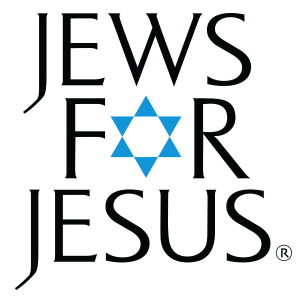Immanuel and Banuel
by Rob Berman, missionary Jews for Jesus South Africa
God with Us and God in Us
We recently celebrated Shavuot (Pentecost)—a time to remember, read and look ahead. We remember what God has done; we read the book of Ruth, and we long for what is to come. We remember that Moses received the commandments from God at Mount Sinai. However, we cannot remember the giving of the commandments, God’s word, without also remembering the pillar of fire over the Tabernacle. This is Immanuel—God with us. Shavuot is a festival that also calls us to look forward, and we look forward to Banuel—God in us*.
In the lead-up to Shavuot, we journeyed through the books of Leviticus and Numbers as part of the Parsha readings (the weekly readings in synagogue). What we have seen in these passages is God setting apart a people, a priesthood, animals and a place. He set apart the people of Israel, and from them, He set apart a priesthood to act as intermediaries between the people and God. Within this setting, we see the importance of animals sacrificed in the place of the people. The priests were to perform the sacrifices as mediators between the people and God.
Part of the priests and Levites’ role as mediators was to camp around the Tabernacle, forming a physical and spiritual barrier between the people and the earthly dwelling place of God. They were to protect the people from the holiness of God and to ensure that no unauthorised person would enter the holy place of God and defile it. In Numbers 6:24–26, God gives the priestly blessing that we all know and love. In verse 27, the Lord also says, “So they shall put My name on the children of Israel, and I will bless them.”
The priests were to bless the people by putting the Lord’s name on them. To Moses, the name of God was far more than what God was called. From the burning bush, the Lord showed Moses His name before He told him His name. Moses saw the Lord’s character, nature and essence before he heard the spoken name of God. The priests ‘putting’ the name of the Lord on the people was far more than speaking His name; they were putting the nature and character of the Lord on the people.
In the New Testament, Peter tells us that we, as the body of Yeshua, are a royal priesthood who were once not a people but now are a people. Peter also says that it was the Lord who called us out of darkness and into the light. The nation of Israel was called out of the darkness of Egypt, redeemed by the blood of the Pesach (Passover) lamb, and called into the light of the promised land. Israel was called into the light at Pesach, and we are called into light at Shavuot. We are called out of the darkness of sin and death, redeemed through the blood of Yeshua and called into the light of God’s presence.
It was at Shavuot that the Holy Spirit was poured out—not only on the Jewish disciples of Jesus but also on the Gentiles. And it is through the element of fire that we see God’s presence manifest, just as in the wilderness where God’s presence was manifest as a pillar of fire over the Tabernacle. But while God was with us in the wilderness, He put His Spirit in us at Shavuot. In the wilderness, the priests put the name of God on us through the priestly blessing, but at Shavuot, the Lord put His Spirit in us—and we truly became a royal priesthood and a holy nation.
When the Lord puts His Spirit in us, we become His tabernacle and His temple. No longer is there a requirement to have a Levitical intermediary between God and man. No longer is there any separation between us—we have become God’s priesthood to share His Spirit and His character with the nations. This is the responsibility of not only having God with us but also God in us: Immanuel and Banuel.
At Shavuot, we study the book of Ruth, which speaks of God’s blueprint: Jew and Gentile united as One New Man. And at Shavuot, we also eat cheesecake! This Shavuot, Elize and I baked a cheesecake and took it to a Jewish-Gentile couple who we have been discipling. It was a wonderful way to help unite two distinct cultures as we shared a meal and cheesecake together. We explored traditional Jewish culture, but we also shared about God uniting Jew and Gentile under Messiah and through the outpouring of His Spirit at Shavuot. We were also able to bring a different perspective to both of them as we retold the story of Ruth. We were able to bridge cultural and religious divides as we shared from the New and Old Testaments, showing that the two are not separate but, in fact, are one—united by Messiah.
*Banuel is not a real Hebrew word; rather, it is a play on words. The Hebrew for ‘God in us’ is Elohim banu.

